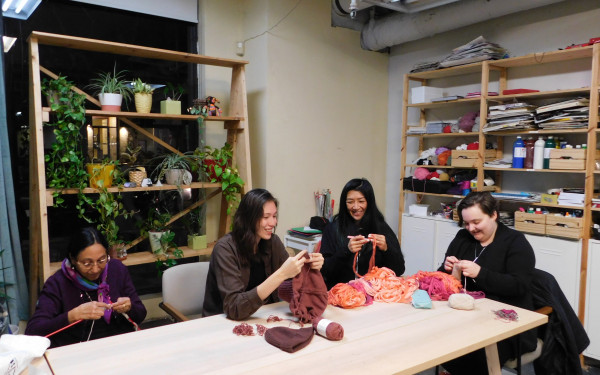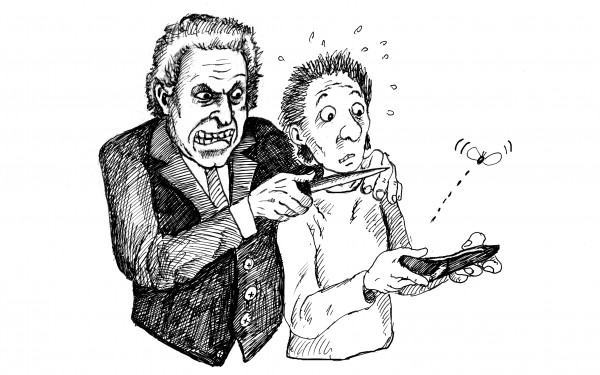The Unexpected Evils of Altruism
Voluntourism is White Saviorism at Work
Why would you volunteer overseas?
Do you have money and think you can change the world with it? Do you have low self-esteem, or simply crave instant gratification on social media? Or maybe you just want to increase your chance to fuck on Tinder by embodying a third-world saviour persona? Well, I’ve got an easy answer to check all your theoretical boxes: voluntourism.
Voluntourism is defined as “a form of tourism in which travelers participate in voluntary work, typically for a charity.”
In appearance, this fancy term for helping seems noble and righteous, but underneath this humanitarian action lies a grotesque truth.
Because of the democratization of traveling—technological improvements, rise of low-fare carriers, etc.—more people than ever in the western world can travel the globe.
But the problem is that people don’t just want to travel the world, they want to save it.
Relentless and cunning, as always, companies have been able to sniff and exploit this growing demand of heroism. According to an article by ABC, published in 2014, voluntourism generates yearly revenues of $2,8 billion. An estimated 1,6 million volunteers travel abroad each year, and the average cost for a two-week experience is around $2,000.
Now that’s a lucrative business.
People want to make a difference, but don’t want to put in the effort of understanding what would make an actual difference. They don’t want to spend time researching and understanding why the country they want to visit is torn by poverty.
No, instead they’ll take whatever is served on a silver platter by companies’ pre-established trips and they accept whatever their definition of making a difference is.
If they did do the research, maybe they would have understood, to use a common example, that one country’s years of civil war(s), caused by the withdrawal of the former colonizer(s) and fueled by the western countries’ vicious interests, put the country in a limbo state.
But they don’t want to hear that. In the comfort of their own home, future volunteers want to change things. They want to do good for the sake of doing good.
Ogling poverty porn, and infected by the white saviour complex, volunteers often exploit and manufacture the misery and distress of others—usually through social media—to generate sympathy that only they benefit from and encourage what they call change—regardless of their subject’s interest to be changed. In reality, it only perpetuates the African-orphan-baby-with-flies-in-the-eyes stereotype. It objectifies those in need to a well-off western culture.
The best interests of the locals are not taken into consideration.In fact, volunteers often make things worse.
In an article by The Huffington Post, published in 2017, writer Pippa Biddle recalled her volunteering experience in Tanzania: “We […] were so bad at the most basic construction work that each night the men had to take down the structurally unsound bricks we had laid and rebuild the structure so that, when we woke up in the morning, we would be unaware of our failure. It is likely that this was a daily ritual.”
In a 2016 article published by La Presse, Mark Watson, director of Tourism Concern—an organization that exposes tourism’s human rights abuses—says that: “It is not unusual for a group of volunteers to paint a school… and for another group of volunteers to paint it again two weeks later.”
This is just to name a few. The amount of aberrant testimonials regarding voluntourism is endless, each more absurd than the last.
The problem is that without proper follow-throughs by volunteers and volunteering companies, the communities are left on their own, without having acquired any knowledge of this so-called shared experience.
It’s a shame, since many of these communities, undoubtedly poor, often suffer from high unemployment rates, according to the 2018 CIA’s World Factbook. The irony is such that unskilled volunteers pay to do the work that locals would be paid for.
Voluntourism creates little to no local benefits, economy, or wealth around the volunteers’ work. And nobody from the village learned any skills when volunteers do this work that could benefit the community.
Furthermore, this form a traveling deeply affects the locals psychologically.
If practicing voluntourism, chances are that volunteers will visit and work in an orphanage. At first sight, children will most likely jump in the unknown helpers’ arms and show them instant affection. It’s highly flattering at first, but deeply confusing. This is often a sign of serious distress.
Constant separations, short-term relationships, and repeated abandonments must create feelings of dependence, incapability, and unworthiness in the children’s eyes.
Most often, parents in third world countries don’t have the necessary means to raise their offsprings. In last resort, they send their children in orphanages in hope of giving them a better future.
The problem is that these institutions heavily rely on the volunteers’ money to sustain themselves.
Oh, and lets not forget that in these institutions, children are often exposed to abuse, violence, and neglect.
In western countries, it’s recognized that the institutionalization of children has harmful effects on a child’s development. Yet, we go to other countries to perpetuate what we deconstructed and acknowledged in our own countries.
On their website, UNICEF, who is extremely critical of these institutions, discourages every volunteer to work in orphanages. The psychological damages inflicted by those institutions on a child’s brain is devastating and irreversible.
An article published by The Guardian in 2018 stated that 92 per cent of Sri Lankan children, and 98 per cent of Liberian children who live in orphanages, still had living parents.
What children need are their parents, not an institution supported by volunteers. Instead of building and painting orphanages, volunteers should work with a local community to reduce poverty and relieve them of their financial burden. It would help the return of children to their family and to reconnect them with their communities.
But orphanages and voluntourism companies are making money on the back of misery and poverty; volunteers maintain this vicious cycle.
Overall, voluntourism creates a sense of dependence from the third world countries towards the western countries. Thriving on this dependence, companies monetize the action of volunteering.
I’m aware that the majority of volunteers probably go abroad with good intentions. I’m also aware that people often don’t even know about the negative repercussions of their actions.
Having gone to Kenya (Thika, Makuyu, and Kibera) on my own and worked independently in several children organizations, I’m aware that I’ve been contributing to this issue. Recognizing that I was a part of the problem was the hardest part.
You must forget about your personal motivations and subjectively understand the impact of your actions. What you give might not be what they need.
My first advice would be to start trying to make a difference in your own city or town. Before importing our kindness elsewhere, why don’t we help our own neighbours?
Websites like the Réseau d’Action Bénévole du Québec (RABQ) also offer a wide repertoire of volunteering opportunities.
If our desire is to help foreign communities in need, there’s always the micro-credit option. It consists of lending a small amount of money to an impoverished borrower that often lack any kind of fixed revenue or governmental support.
A small donation through microfinance companies—like the Grameen Foundation—could truly help to do the difference on a micro-level.
If you absolutely want to go volunteer overseas, you should consider ethical volunteering organizations, to avoid voluntourism traps.
In doing so, we need to understand where our money is going, the organization’s purpose, to avoid orphanages, and try to aim for projects that provide sustainable and lasting effects for the communities.
The Ethical Travel Guide is a website created by the charity organization Tourism Concern, that gives volunteers thousands of option regarding grassroots and sustainable initiatives.
Finally, if you want to go full commando, off the beaten paths, you can take a one-way ticket to a destination, blend in with the locals and try to understand their needs. Don’t work for them; work with them.
In the end, all I’m saying is to just be aware of what you’re doing and do it with spirit.
Don’t do it because you want to be cool. Don’t do it for social media. Don’t do it for instant gratification. Don’t do it for misinterpreted desires. Do it because you deeply and genuinely want it. Do it because you understand the why behind your action.





__600_375_90_s_c1.jpg)

